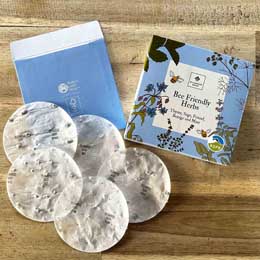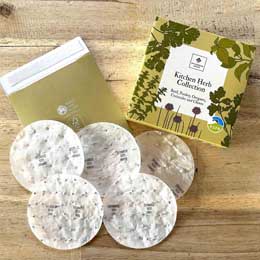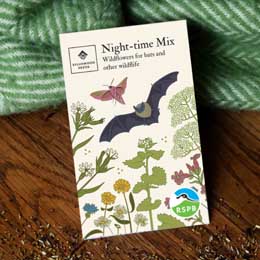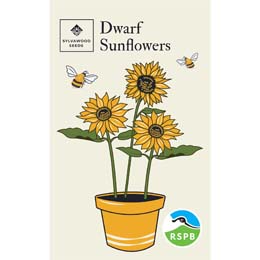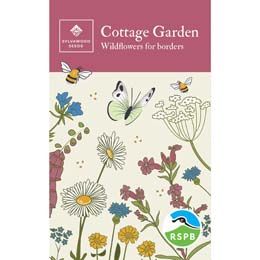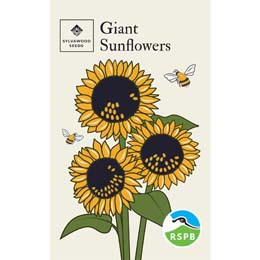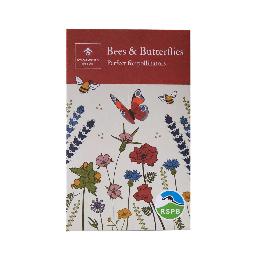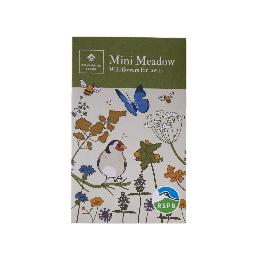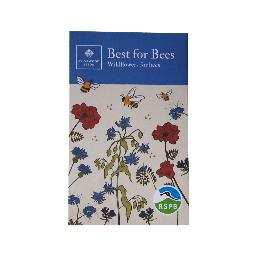Slide 1 of 1 



No-quibble free returns:
Unhappy with your item? We offer no-quibble free returns
Nature-friendly products:
Sourced through ethical and sustainable accreditations
Free delivery over £40:
£3.95 standard UK shipping, or free shipping over £40
Supporting the RSPB:
Every purchase you make supports wildlife
Wildflower seeds for pollinators
11 list items
Wildflower FAQs
Why are wildflowers important?
Wildflowers play a vital role in supporting wildlife and biodiversity. They provide food for pollinators like bees and butterflies throughout the year, contribute to ecosystem resilience, and can help prevent soil erosion once they’re established. Wildflowers are often hardy and require less maintenance than other garden plants.
Where to plant wildflowers?
Wildflowers can be planted anywhere that gets a lot of sunlight. You can plant them on your lawn or just a patch of lawn, raised beds, window boxes and plant pots.
How do I plant wildflower seeds?
To plant wildflower seeds, prepare an area with well-drained soil. Scatter the seeds evenly over the soil surface and lightly press them in and water gently to avoid displacing seeds. Ensure consistent moisture during the germination phase, and avoid over-fertilizing, as wildflowers prefer nutrient-poor soils.
How long do wildflowers take to grow?
The growth time for wildflowers varies, typically taking 2 to 12 weeks for germination and initial growth. However, full bloom may require a few months to a year, depending on the species. Patience is crucial; wildflowers establish deep roots before producing vibrant blooms.
When to sow wildflower seeds?
The ideal time to sow wildflower seeds in the UK is typically during the autumn or early spring. Autumn sowings (September to November) allow the seeds to undergo a natural process called cold stratification, which enhances germination. Early spring sowings (March to May) also provide favourable conditions for germination and establishment. Be mindful of frost dates in your region and choose a time when the soil is workable.
Why are my wildflower seeds not growing?
Several factors could impede wildflower seed germination. Ensure the seeds are fresh and haven't expired. Lightly press them into the soil, so they make good contact. Proper moisture is crucial, so avoid letting the soil dry out completely. Additionally, some wildflowers require specific conditions, such as cold stratification, before germination. Assess the planting site for sunlight, drainage, and potential competition from weeds that may hinder growth. Adjusting these variables can enhance the success of wildflower growth.
